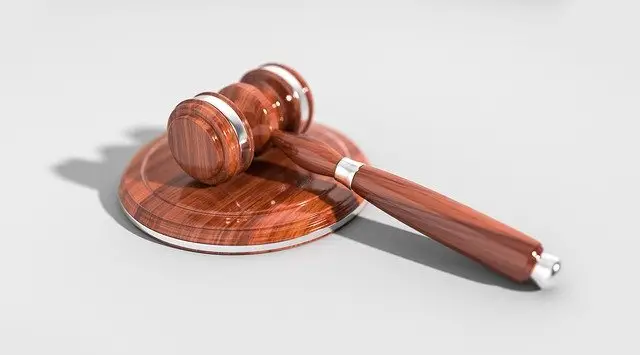After five candidates presented their programmes and answered questions from members of the Judiciary Committee for seven hours on Thursday, Committee members decided to postpone the vote at the proposal of MP Krunoslav Katičić of the ruling HDZ party, who said that before taking the vote the Committee should have all information regarding disciplinary proceedings against Dobronić.
The Committee, whose decision is non-binding on the constitutional proposer of the candidate for the Supreme Court head, President Zoran Milanović, on Thursday interviewed Dobronić, Barbara Gundić, Marin Mrčela, Lana Petö Kujundžić and Šime Savić.
Dobronić: Judiciary has lost minimum trust of citizens
In his address to the Committee, Dobronić said that the judiciary has lost the minimum trust of citizens but that it is not true that judges are lazy and that the system is being blocked by a large number of cases.
Between 200,000 and 300,000 cases are related to the state or state-owned companies, he said, noting that the situation could be improved significantly by improving governance at the central and local levels.
Asked by HDZ MP Dražen Bošnjaković how he would deal with the problem of corruption in the judiciary, Dobronić said that more than 90% of judges work in good faith but that the judiciary, as a branch of government, should be 100% vetted.
“No judge must make an omission. The corruption rate among judges is not even 1-2%, but that undermines trust in the system,” he said, adding that Croatian judges are also EU judges and their decisions have far-reaching consequences.
Asked by HDZ MP Damir Habijan which measures he would introduce if he was elected Supreme Court president, Dobronić cited reorganisation of the judiciary, education for business people, changes to the system of public notaries, and the reorganisation of work regarding complaints, which, he said, would reduce the number of cases by 30-50%.
Dobronić says learned about disciplinary proceedings from reporters
HDZ MP Marija Jelkovac wanted to know about disciplinary proceedings launched against him for “lack of due diligence in performing his duties as a judge”. Dobronić said that he had been informed about the proceedings by reporters and that in 2019, the year in question, he worked on old cases, appeals and other judges’ cases and that the time spent on that type of work was not taken into account.
“I do not feel affected by it (disciplinary proceedings) because it is completely beside the mark and wrong,” he said, noting that there is an awareness of this problem in the judiciary and that he intends to deal with it by introducing controls of the quality of performance.
Asked by Bridge MP Nikola Grmoja to assess the system of allocation of cases to judges, Dobrinić said that judges themselves do not understand the criteria under which they are given individual cases.
“I do not know if that is abused in individual cases, but the system can be better programmed,” he said.
Asked by HDZ MP Ljubica Lukačić what he could do to make the judiciary available to everyone, Dobronić said that the practice of judges writing complaints for citizens free of charge on certain days is a good legacy of the previous, Socialist system and that it could be reintroduced.
Judges must focus on merits of case
Social Democrat MP Vesna Nađ asked Dobronić where he saw resistance and where allies in the implementation of reforms, to which he said that resistance can happen at any level.
He also noted that enforcement judges should focus “on the merits of a case rather than nitpick over every single kuna.”
Zlata Đurđević, President Milanović’s previous candidate for Supreme Court president and external member of the Judiciary Committee, raised the issue of the State Judicial Council’s work.
“It should definitely be defined in a different way. It has never been discussed what to do when someone constantly writes reasonings of judgements that make no sense,” he said.
Speaking of uneven court practice, which he considers one of the main issues, Dobronić said that it happens because judges make a large number of decisions, but he recalled that departments have been established to monitor case law and warn a judge if their predecessor has already made a ruling in a similar case.
“Judges should discuss their cases more with one another and share their experience,” he said.
Asked by Homeland Movement MP Stephen Nikola Bartulica if he believed that in Croatia the process of lustration had been carried out, Dobronić said that some judges had been treated unfairly in both systems.
Mrčela: Belittling of judges comes from politicians
Presenting his programme, the acting President of the Supreme Court, Marin Mrčela, said that the head of the highest court in the country is neither a radical nor a revolutionary but that he or she can initiate steps to improve the situation in the judiciary.
Noting that his programme contains 39 such measures, he said that there are 22 key problems in the judiciary, singling out the length of proceedings, public perception of the judiciary and the atmosphere in which it is normal to belittle judges’ decisions.
In that regard, he also mentioned insufficient economic and human resources, too broad jurisdiction of courts, the platitude about the existence of a judicial clique and the autism of judges, and judges’ affiliation to political groups, which he said is untrue.
Mrčela said that the belittling of judges comes from politicians, including high-level ones, and that messages in the media saying that “judges and politicians should be killed” should be taken seriously. “The problems of the judiciary, the length of proceedings, immorality and even corruption, should not be cause for political influence on the judiciary.”
Asked by Dražen Bošnjaković (HDZ) whether the legal provision on legal protection and allowing the Supreme Court to standardise case law of criminal courts should be changed, Mrčela said that he does not agree with the proposal by former Supreme Court President Đuro Sessa that it should be changed. “We only need to leave open the possibility for the Supreme Court to standardise case law using extraordinary remedies, as has been the case so far.”
Independent MP Karolina Vidović Krišto was interested in Mrčela’s opinion on civil society organisations that protect victims of paedophilia, which claim that sentences handed down by the Supreme Court against paedophiles are too lenient. “I will personally advocate for all criminal cases to be analysed. Punishment must not be an expression of anger, but of careful thinking on the part of judges in deciding on a sentence,” Mrčela said.
Speaking of the length of proceedings, Mrčela said that court presidents have the authority to order a case to be dealt with within the shortest time possible, and that such deadlines should be instructive. He concluded by saying that it would be good if politicians did not comment on specific cases.
High Criminal Court Judge Lana Petö Kujundžić said while presenting her programme that the Supreme Court must be efficient, fast and expeditious in dealing with cases and that it must use its authority to make this possible for other courts as well. She stressed the importance of all courts having equal technical equipment, and added that courts must be more open to the public in order to change public perception of the judiciary. She expressed concern about judicial administrative staff being underpaid.
Presenting his programme, Zagreb lawyer Šime Savić commented on the assessment made by the general session of the Supreme Court that he is insufficiently competent for the post of Supreme Court President. He said that with his election the Supreme Court would get the best president. As the only candidate to have responded to all three public calls for applications, at the end of the marathon hearing he said that they would meet again for a forth time.
A candidate for Supreme Court President is proposed by the President of the Republic after a prior advisory opinion from the parliamentary Judiciary Committee and a general meeting of the Supreme Court. At the Supreme Court’s general meeting held early this month, Mrčela received 29 votes, Dobronić received four, while the other candidates did not receive any votes.
Milanović has said earlier that Dobronić, who is known for his judgment against banks in the case of CHF-denominated loans, is his candidate, while the parliamentary majority has announced that they will decide on the candidates after the decision by the Judiciary Committee and the general meeting of the Supreme Court.
For more on politics in Croatia, CLICK HERE.











